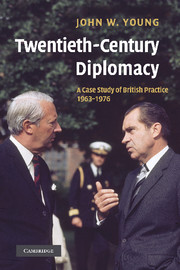Book contents
9 - Recognition and diplomatic relations
Published online by Cambridge University Press: 30 June 2009
Summary
It was not I who sent the Assyrians, my own subjects, to you. Why have they come on their own authority to your country? If you love me, they should not do any business with you. Drive them away empty-handed!
Burna-Birriash of Babylon to Akhenaten of Egypt, c. 1340 BCThe Babylonian complaint about Egyptian dealings with the upstart power, Assyria, reflects the difficulty down the ages of new regimes: others might not accept the legality of their existence, especially if they seem to break accepted norms of behaviour. In the Amarna period it was understood that the ‘Great Kings’ were a select group and that one would not enter into diplomatic relations with the vassals of the others. In the modern age, there is a reluctance to deal with a regime if there are doubts about its stability or its readiness to accept international obligations. While much of this book has concerned the way Britain communicated with other countries, there have always been situations in which governments choose not to have diplomatic relations. At times, governments refuse to recognise a country in the first place, as with the Western refusal to recognise East Germany until the mid-1970s. At other times, they recognise each other's existence but sever diplomatic relations, not least in wartime. The 1960s were important for seeing a large number of breaches, often carried out abruptly and for purely symbolic reasons, especially by newly independent states who wanted to signal disapproval of ‘imperialist’ behaviour.
- Type
- Chapter
- Information
- Twentieth-Century DiplomacyA Case Study of British Practice, 1963–1976, pp. 198 - 225Publisher: Cambridge University PressPrint publication year: 2008



